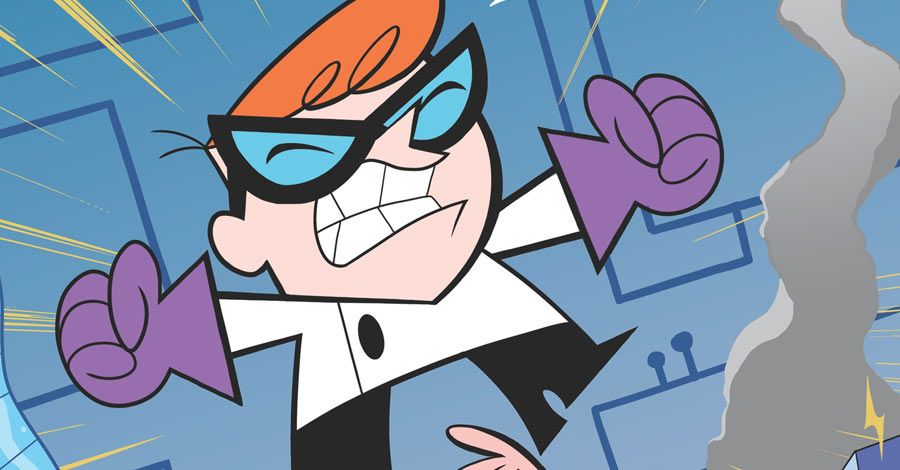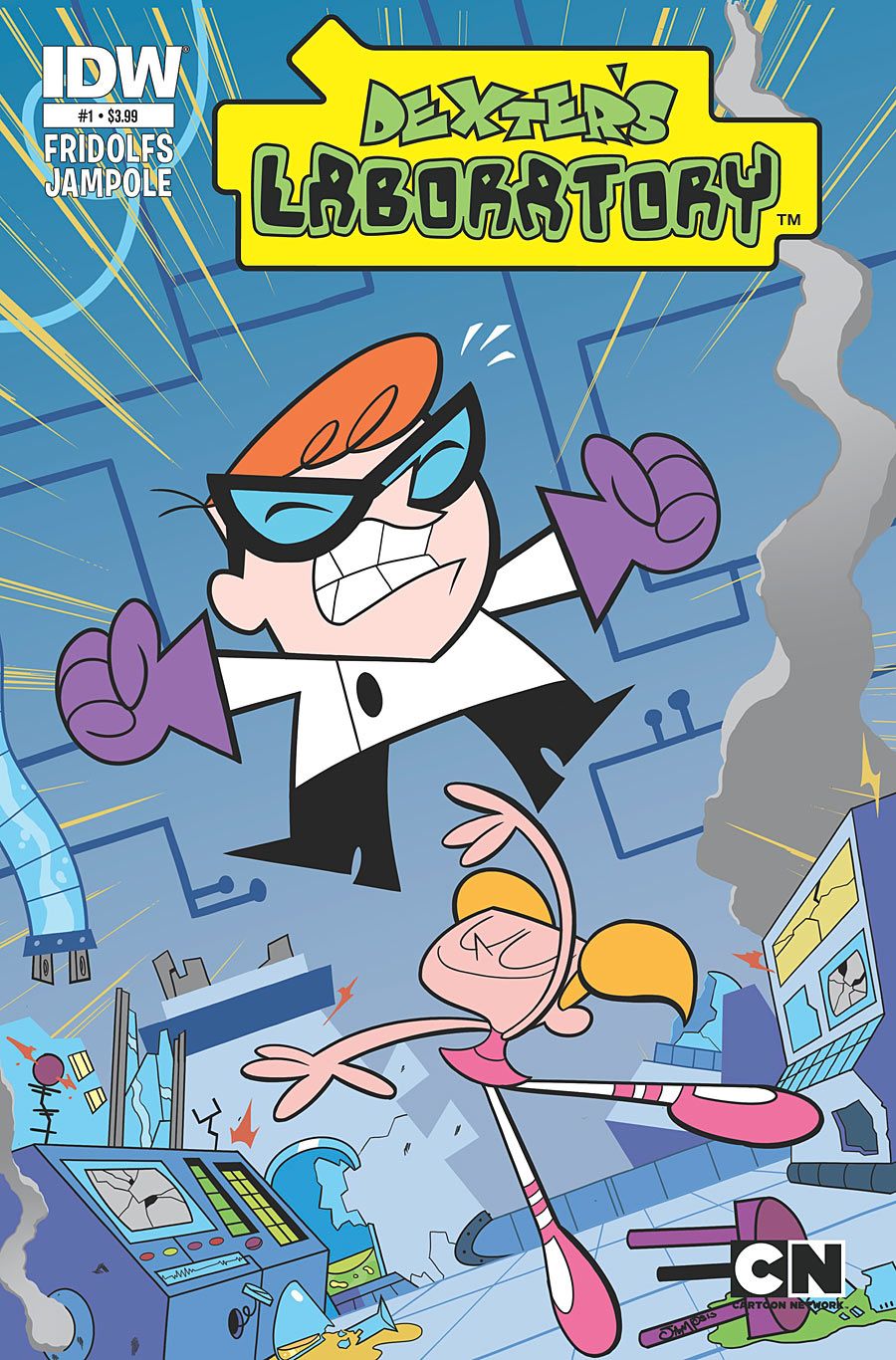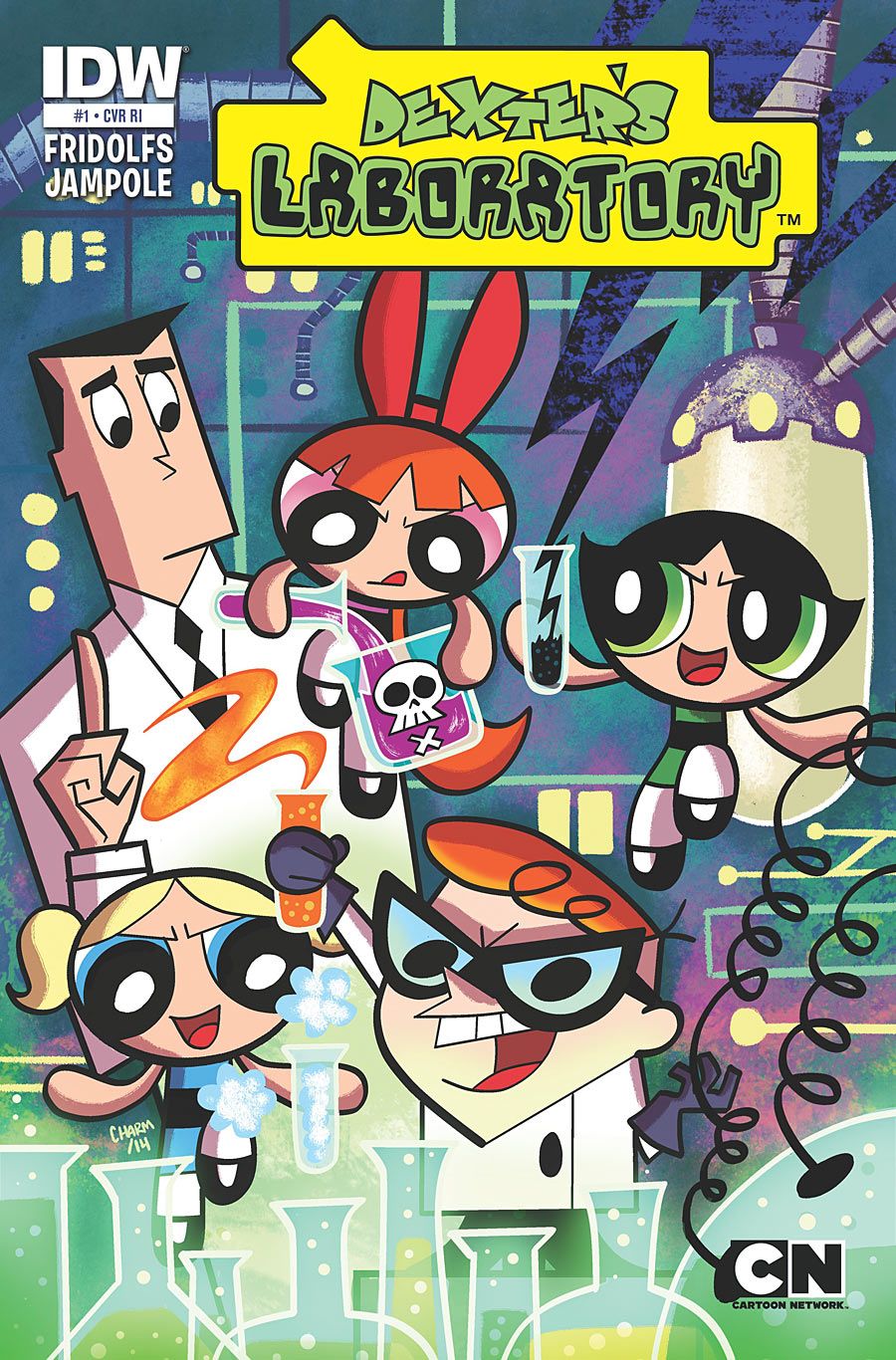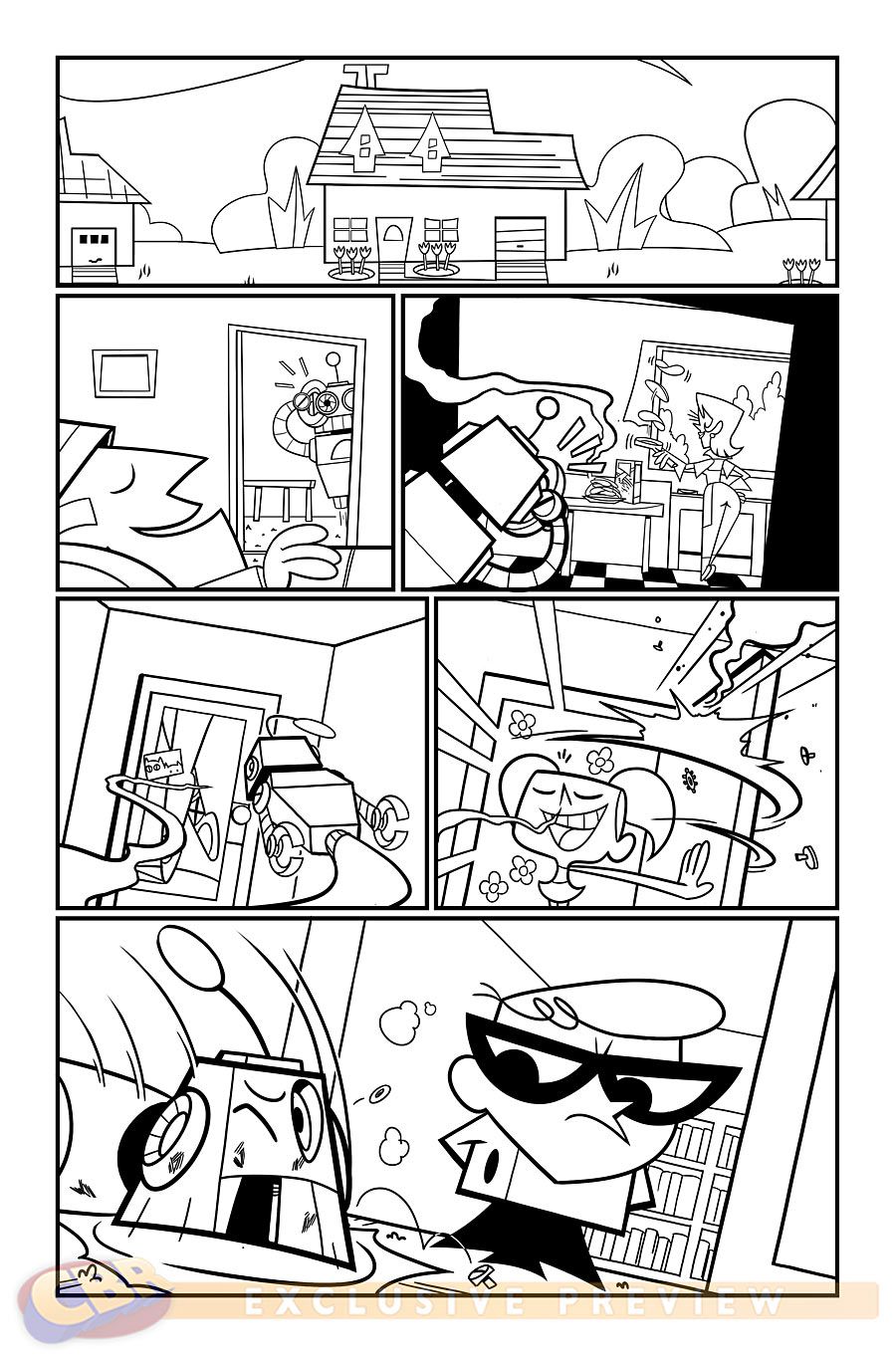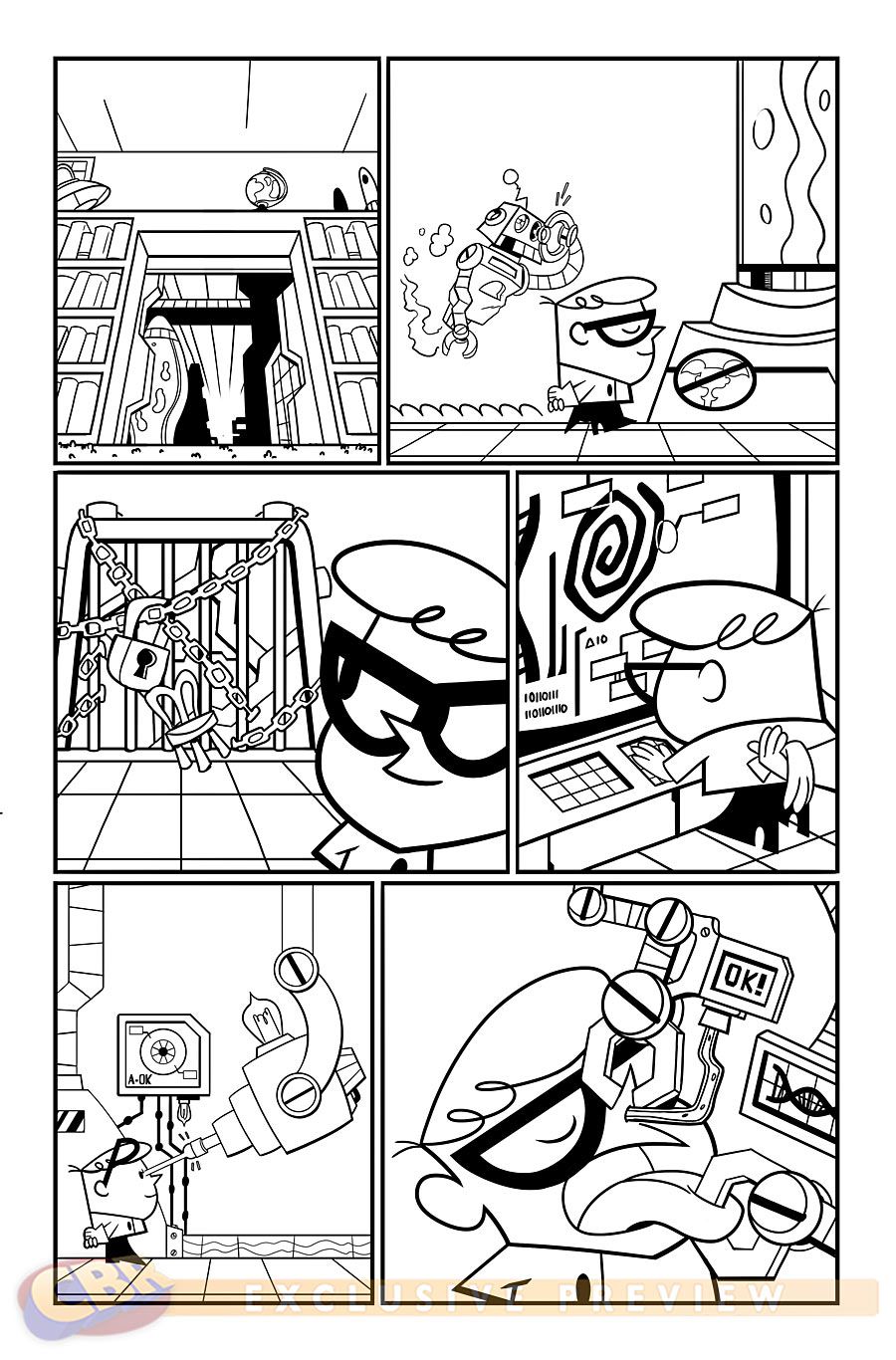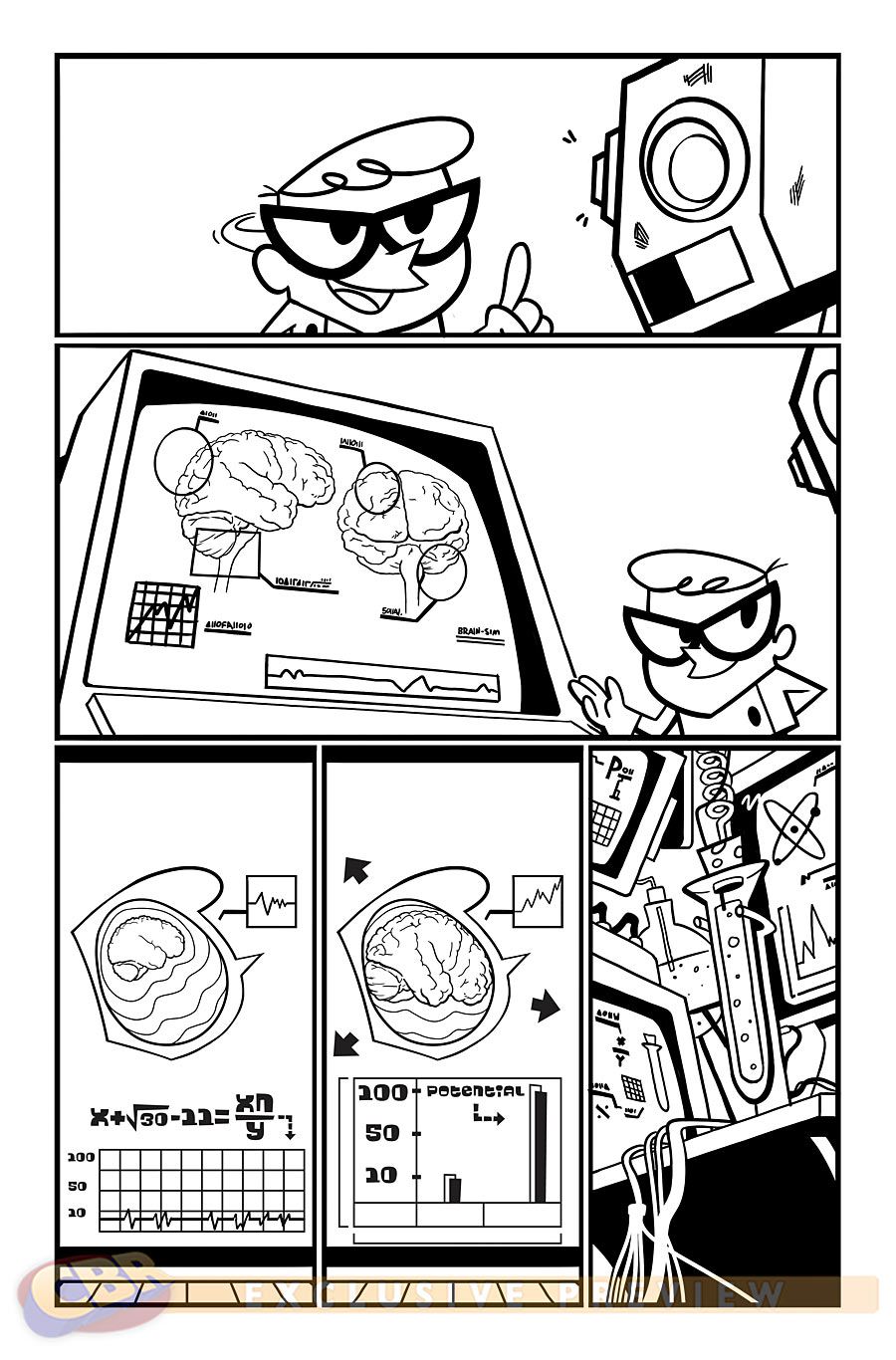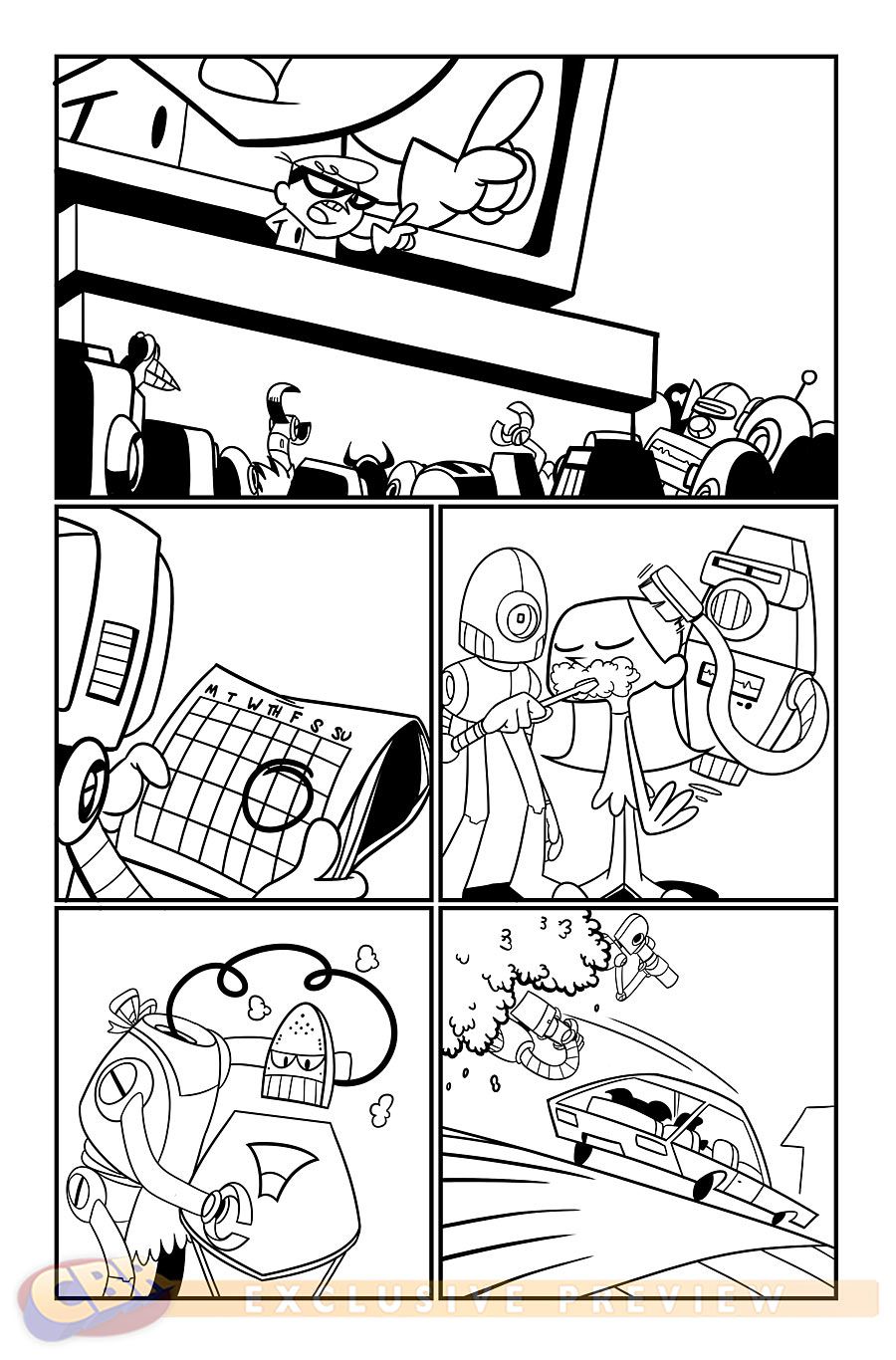He's alive! IDW Publishing revives Cartoon Network's most infamous boy genius this April for "Dexter's Laboratory", a 4-issue miniseries from writer Derek Fridolfs and artist Ryan Jampole.
"Dexter's Laboratory" is the latest offering from IDW's ongoing relationship with Cartoon Network that has also produced new comic books for "The Powerpuff Girls," "Samurai Jack" and "Ben 10," as well as this summer's upcoming "Super Secret Crisis War" crossover written by Louise Simonson. Created by legendary animator Genndy Tartakovsky, "Dexter's Laboratory" aired 78 episodes between 1996 and 2003 on Cartoon Network.
Fridolfs spoke with CBR News about his "Dexter's Laboratory" story, revealing what's in store for the world's youngest scientist, explaining his approach to writing all-ages stories and more.
CBR News: Derek, what's your "Dexter's Laboratory" story about?
Derek Fridolfs: The core concept of the show is Dexter's the boy genius hard at work at creating all sorts of cool inventions in his lab, and Dee Dee is his sister saboteur that is always ruining it for him. So I wanted to take that concept and boil down the story to -- what would happen if we remove Dee Dee from the equation? If Dexter didn't have a sister and was unhindered, what would the results be? And as the old adage goes, "Be careful what you wish for."
It's a nice chance for Dexter and Dee Dee to share the spotlight and also see each other in a unique way.
Are you writing one-and-done stories or a longer arc for "Dexter's Laboratory?"
"Dooms Dee" is a 4-issue miniseries arc. And I'm hopeful we'll get to do all sorts of stories of various lengths. I am a huge advocate of one-and-done issues, which can naturally feel very much like episodes of the show. And longer arcs which expand their world into larger-than-life events.
Are you creating any new characters?
There are a couple new ones for this story. But mainly a chance to get reacquainted with Dexter, his family, and their supporting cast of characters. Some easter eggs and surprises as well.
RELATED: Louise Simonson Helms IDW/Cartoon Network "Super Secret Crisis War" Crossover
Will Ryan Jampole be mimicking the look of the TV series with his art or will he be bringing his own style to the book?
I think if you've seen the first issue cover he drew, it looks like an animation still shot from the cartoon. It feels that spot-on! Even the thumbnail pencils of his layout pages, look incredibly clean for being roughs. Each new piece of art that comes in gets me more excited to see this in print, because it feels like the show is continuing that fun visual style. And Ryan is adding his own sense of staging and storytelling as well.
What's your approach to writing all-ages stories? Is it as simple as just removing "adult" content and themes?
Whether I'm writing in the all-ages market or even darker adult stories, I always try to approach it by remaining true to the characters and the world they inhabit. Having the benefit of working on a title based off a long-running animated show, provides plenty of reference for their voices and storytelling style present in the show. And that's part of the fun challenge trying to seamlessly and effortlessly fit in. When readers pick up a comic I've written based on a property on another platform ("Adventure Time," "Ninja Turtles," the "Arkham" games), I want them to hear the voice actors, the musical score in their head, and have the visual art support the story I'm telling, as if they're experiencing a lost episode. The only difference is they're experiencing it on paper or a computer screen rather than on the TV.
Were you a fan of "Dexter's Laboratory" growing up?
It ages me to say that when "Dexter" first came out, I was midway through college. But even at that time, I was watching it. I've always loved cartoons, no matter what age I am. "Dexter" and "The Powerpuff Girls" were those fun shows I enjoyed watching and drawing as they came out.
Most of my favorite episodes for the show were in the earlier seasons before some of the staff and voice actors moved on. "Dee Dee's Room" and "Tribe Called Girl" are a couple favorites, and helped influence my story for the comics. And "Ego Trip" is fun for the time travel elements seeing different versions of Dexter.
What do you think it is about "Dexter's Laboratory" that has made its popularity so enduring, even a decade after it aired its final episode?
Visually it has appealing design work. Just a fun style that Genndy [Tartakovsky] developed and continued through each show he's worked on. And I think it sort of scratches that itch for robots and sci-fi and zaniness that kids of all ages enjoy. Also just the way that Dexter and Dee Dee react and play off of one another. Like most siblings, they get on each other's nerves and know which buttons to push (and in Dee Dee's case... that's literally ever button).
Do you relate to Dexter personally? How about your antagonists Dee Dee and Mandark?
RELATED: Fridolfs Plants Poison Ivy into "Detective Comics"
I definitely relate to Dexter. Working in comics as a writer and artist, you sort of lock yourself to the art table or computer and work in your cave (lab, office). It's a very solitary life at times, but one I enjoy. I enjoy the process of creation, and I think Dexter does too. And like him, I hate to be distracted or interrupted. For creative types, it probably makes us tough to live around.
The less serious and more carefree whimsy of Dee Dee is something to aspire to, at least after the work is done. But a pain when it enters our creative bubble when we want to be left alone. So to me -- there's lots of Dee Dees out there (phone calls, doorbell, loud noises, and at times even friends and family interrupting the work flow). And if we've had any rivals in our lives growing up, in school or the workplace, I'm sure we all know a Mandark.
Is it possible to have true character growth in licensed titles like "Dexter's Laboratory" where people expect to see characters behave in the same manner they know from TV?
That is the trick. Always referred to as the Illusion Of Change. Trying to make something feel new, but not really changing anything. When working on an established property, especially on a children's cartoon, it's not like you're going to be allowed to do anything drastic or long standing like kill the characters (not that you should). But I think you can find new ways to approach or highlight things you find interesting about them. New facets you can explore. And it is something that I thought much about in the story for these "Dexter" comics. What are the ramifications of making sweeping changes? And is it possible for the characters to grow and reveal things that they might've kept bottled up before, or not realize until it's too late? Those will be answered in the story I'm telling, and hopefully be as surprising and enjoyable to the readers as it can be for Dexter and Dee Dee.
"Dexter's Laboratory" #1 (of 4) is out this April from IDW Publishing.

